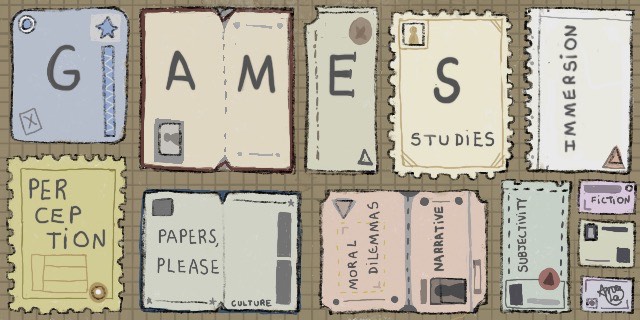Perception, immersion, and subjectivity: understanding digital game narratives in 'Papers, Please
DOI :
https://doi.org/10.34627/redvol7iss2e202436Mots-clés :
Perception, Immersion, Subjectivity, Game Studies, Papers PleaseRésumé
This study investigates the phenomenon of immersion in video games, specifically examining how digital games act as communicational interfaces that elicit immersive experiences. Using ‘Papers, Please’ as a case study, we analyze the player’s interaction with a meticulously simulated environment where bureaucratic decision-making and severe immigration policies unfolds in a fictional State. The study explores immersion through two theoretical pillars: the concepts of immersion in digital games and the notion of sensible experience, both of which could converge in players' subjective interaction with the game. Methodologically, this research relies on participant observation and qualitative analysis to assess the extent to which players can be transported into the game’s narrative. Findings reveal that immersion in ‘Papers, Please’ is heightened by its narrative complexity, the moral dilemmas it presents, and its mechanics. These factors contribute to a unique affective experience, where players engage with social and political themes embedded in the game's design as lens to conceive the world around. This paper concludes by discussing how these immersive experiences extend beyond gameplay, fostering critical reflection on broader societal issues and educational purposes.

Téléchargements
Publiée
Numéro
Rubrique
Licence
(c) Tous droits réservés Caio Tulio Olimpio Pereira da Costa, Ana Laura Matos Torquato 2024

Ce travail est disponible sous licence Creative Commons Attribution - Pas d’Utilisation Commerciale 4.0 International.
Os autores conservam os direitos de autor pelo seu trabalho e concedem à revista o direito de primeira publicação, com o trabalho simultaneamente licenciado sob uma Licença Creative Commons - Atribuição-NãoComercial 4.0 Internacional.


